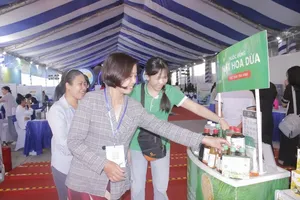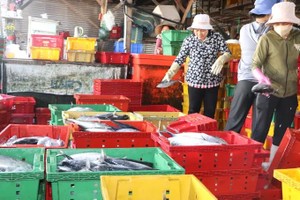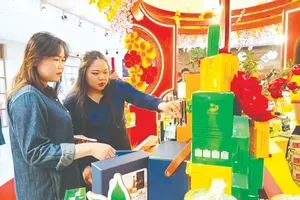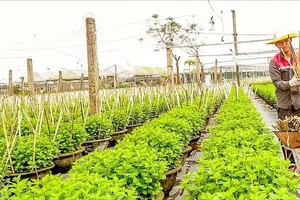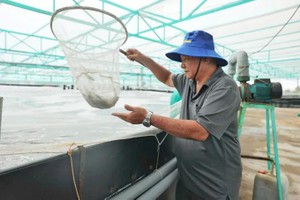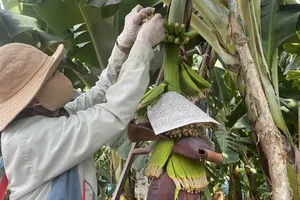
Addressing the meeting about the implementation of a plan in the upcoming time with businesses and organizations related to the bird's nest industry in Ho Chi Minh City, Chairman Le Thanh Dai of the Vietnamese Swiftlet Farming Association under the Viet Nam Farms and Agricultural Enterprises Association said that swiftlet populations have plummeted due to prolonged drought, hunting of swiftlets for releasing.
For instance, swift numbers in localities have fallen from 20 percent to 40 percent; even Go Cong Dong District of Tien Giang Province in the Mekong Delta and Can Gio outlying district (HCMC) have seen a decreased population of swiftlets up to 50 percent.
In general, the bird nest area along the coastal provinces has decreased significantly.
Meanwhile, there have not been criteria to determine the quality of bird's nests and products made from bird's nests in the domestic market. Bird's nests from countries in the Asian region of unknown origin and low quality are imported into Vietnam which are mixed with domestic bird's nests and then the products are sold at high prices.
Meanwhile, localities are slow to announce plans for bird's nest farming areas, causing many difficulties in promoting the potential of the bird's nest industry. The Vietnamese Swiftlet Farming Association (VSFA) advises investors and local people not to be impatient or hasty in building new bird's nest houses in the current context because they may face many risks.
Chairman Le Thanh Dai revealed that from the end of 2023 until now, there have been 9 businesses granted codes by the General Department of Customs of China to export semi-processed bird's nests or products processed from bird's nests for official export to China. However, the approval procedures are cumbersome and take a lot of time and effort to get certified.
Vice Chairman Nguyen Dung of the Vietnam Farms and Agricultural Enterprises Association (VFAEA) said that a research project on the development of the domestic bird's nest industry is needed to help the Vietnamese bird's nest industry develop stably, especially the southern provinces, including the Central Highlands. Preventing bird hunting requires the drastic participation of local governments while responsible agencies must tightly keep their eye on imports of bird nests from countries in the region to avert the mixture of domestically-raised bird nests and substandard imported ones.
The association, connection, and mutual support between VFAEA and VSFA will help the domestic bird's nest industry have the conditions to develop strongly and sustainably. Moreover, the two associations coordinate in providing technical support to build new bird's nest houses without waste.
Currently, VSFA has 247 members, of which 50 are organizational members, and the rest are individual members. In the coming time, VSFA will develop a model of bird's nest associations in provinces and cities. VSFA is responsible for developing the market, building and protecting the brand and establishing professional teams to help its members.
According to the Ministry of Agriculture and Rural Development, over 22,000 bird's nest houses have been built in 42 provinces in the country, mostly in the Mekong Delta region, the Southeast region, the Central Highlands region, the Central Coast and some Northern provinces. Vietnam's bird's nest output is about 150 tons worth over US$600 million. Vietnam’s largest bird's nest consumer market is China which consumes 300 tons a year accounting for 80 percent of the global market share.
Vietnamese bird's nest products are favored by Chinese customers who value the quality of Vietnamese bird's nest products better than that of other countries in the region, so China is the biggest consumer market for Vietnam’s bird nests. Some 45 businesses have registered to export bird's nests to China, and have been instructed by the Department of Animal Health to monitor disease safety and food safety according to China's requirements. Among them, nine bird nest production enterprises have been granted export codes by the General Department of Customs of China.


